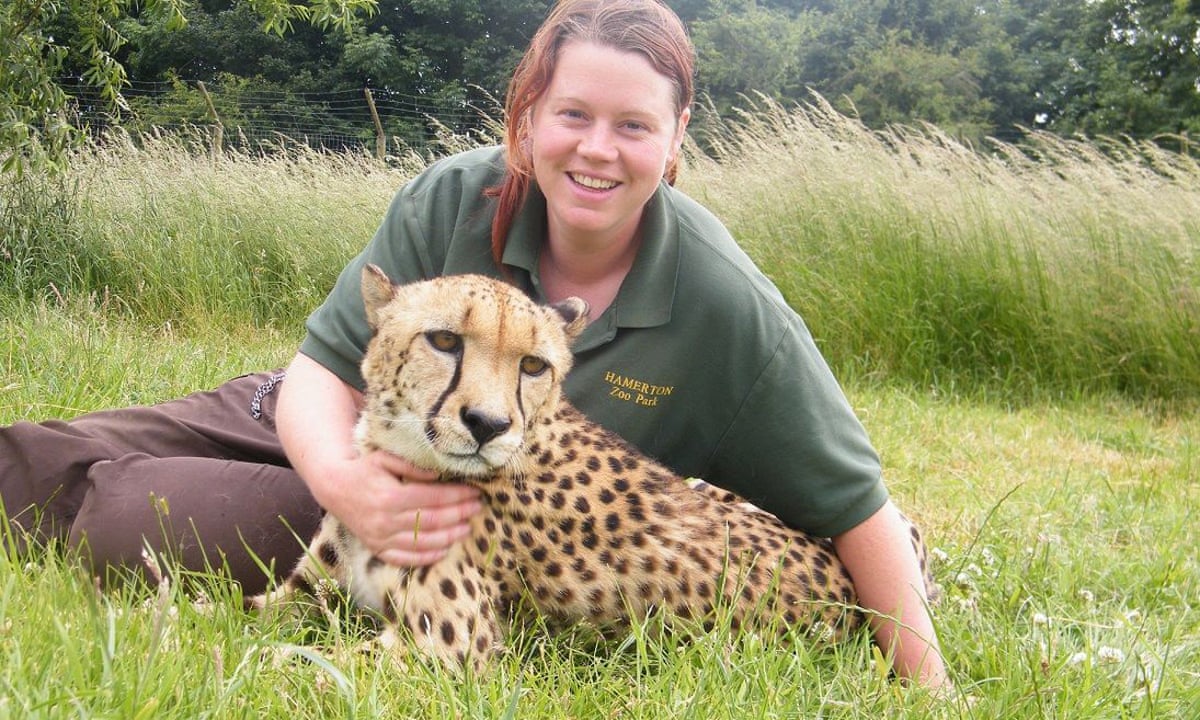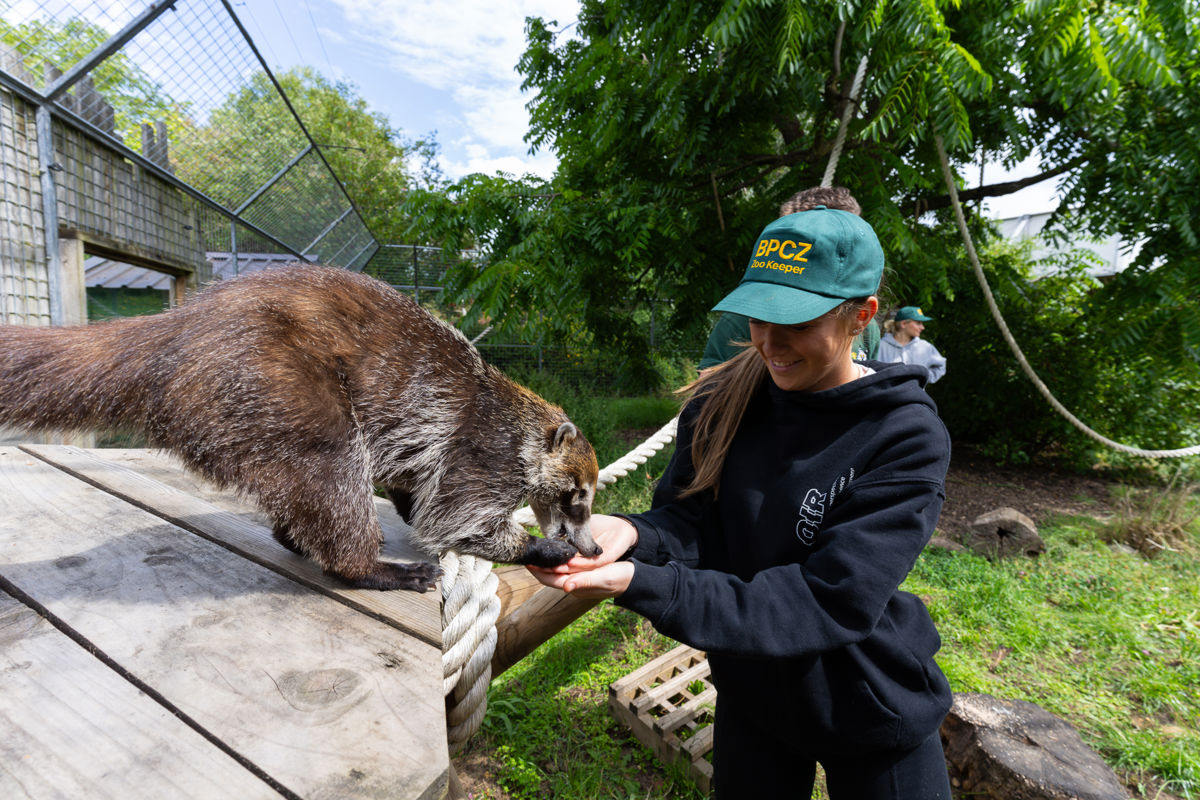
Tania Araujo @ tania85w66187 Member Since: 17 Feb 2025
 South Africa
South Africa
About Me
How To Become A Zoo Keeper?

"The greatness of a nation and its moral progress can be evaluated by the way its animals are treated." - Mahatma Gandhi
Do you enjoy animals and imagine working in a zoo? Zoo keepers are key in safeguarding wildlife and caring for animals. At locations like the Zoological Society of London (ZSL), over 20,000 animals get the care they need from professionals.
To become a zoo keeper, you require hard work, education, and a love for animals. This task is interesting, letting you work with many types and assist with crucial preservation work. If you're into wildlife or animal welfare, zookeeping might be perfect for you.
Starting your zoo keeper career indicates learning what's needed. This guide will cover education, experience, zookeeper and more. It's all you require to know to start a fulfilling zookeeping career.
Understanding the Role of a Zookeeper
Exploring what a zookeeper does reveals a role loaded with obstacles and rewards. They concentrate on animal welfare and conservation. Zookeepers strive to keep animals healthy and delighted in their care.
Daily Responsibilities and Tasks
A zookeeper's day is filled with crucial jobs:
- Preparing meals that satisfy each animal's nutritional requirements
- Cleaning up enclosures to keep them clean and safe
- Watching over animal health and behaviour
- Providing medicines and treatments as required
- Producing activities to keep animals psychologically sharp
Working Environment and Conditions
Zookeepers work outside in all type of weather condition. They manage both indoor and outdoor spaces. The task needs being physically fit and able to deal with the needs of caring for animals.
"Being a zookeeper is more than a task - it's an enthusiastic commitment to animal care and conservation."
Kinds of Animals and Specialisations
Zookeepers can specialise in numerous animal groups:
- Primates
- Big cats
- Marine mammals
- Reptiles
- Birds
Your function might include dealing with 2-5 different animal species. This needs a lot of knowledge and the capability to adapt.
Vital Skills and Personal Qualities for Zoo Keeping
To be a top zookeeper, you need more than just a love for animals. Your task will be difficult and require you to manage animals and individuals well. You'll likewise need to comprehend animal behaviour.
What zoos try to find in individuals includes:
- Exceptional persistence and emotional durability
- Strong physical fitness and endurance
- Keen observation abilities
- Capability to stay calm under pressure
- High level of compassion towards animals
Getting hands-on experience is crucial to mastering this role. You'll require to show:
- Advanced understanding of animal care techniques
- Efficiency in animal handling and safety procedures
- Efficient interaction with both animals and human visitors
"An excellent zookeeper links science, empathy, and conservation in every interaction with animals."
You need to know about animal nutrition, behaviour, and standard vet care. Many zookeepers learn through training, volunteering, and ongoing knowing.
Zookeeper work is not just a job. It's a huge commitment to teaching about wildlife and assisting preservation. Your enthusiasm and effort will make you stick out in this satisfying profession.
How to Become a Zoo Keeper
Beginning a profession as a zookeeper needs mindful planning and education. You need to first comprehend the academic needs and training paths. These will turn your love for animals into a task.
Educational Requirements
To be a great zookeeper, you need a strong scholastic base. A lot of jobs look for certain qualifications:
- At least 5 GCSEs at grade 4 or above, consisting of English, maths, and science
- A levels or college credentials
- A college degree in biology or animal science
- Level 3 Diploma in Animal Management
Essential Certifications
Getting special certifications can actually help you in your zookeeper profession. Essential ones consist of:
- Diploma in Management of Zoo and Aquarium Animals (DMZAA)
- Zookeeping Level 3 Diploma (RQF)
- Animal dealing with certificates
- Emergency treatment qualifications
Training Programs and Apprenticeships
Getting hands-on experience is key in zookeeper training. Many places offer great chances:
- Unpaid apprenticeships at wildlife parks
- Internship programs at popular zoos
- Practical training at places like Colchester Zoo and Dartmoor Zoo
- Volunteering to acquire real-world abilities
Pro pointer: Create a comprehensive portfolio to reveal your animal care abilities. It will help you in job applications.
Building Relevant Experience in Animal Care
Acquiring hands-on experience is crucial for those wishing to be zookeepers. The task is extremely competitive. So, it's important to begin building a strong base in animal care.
Your journey begins with finding methods to work directly with animals. This is a strategic action.
"Experience is the very best teacher in animal care" - Wildlife Conservation Experts
Here are effective ways to acquire experience dealing with animals:
- Volunteer at regional animal shelters to develop basic animal managing abilities
- Seek internships at wildlife rehab centres
- Check out part-time positions at veterinary centers
- Contact your local zoo for possible volunteer opportunities
Volunteering is a terrific method to learn more about animal behaviour and care. Many zoos and animal shelters are searching for people who wish to find out. These locations use fantastic chances to get hands-on experience and reveal your dedication to animal welfare.
Here are some ideas to make the most of your experience:
- Keep a record of your abilities and interactions
- Get in touch with specialists in animal care
- Ask for references and zookeeper recommendation letters
- Stay relentless and show your real enthusiasm
Keep in mind, practical experience makes you stick out in the zookeeping world. Each time you deal with animals, zookeeper you find out more. This increases your opportunities of getting a job in animal care.
Profession Pathways and Professional Development
Starting a profession as a zookeeper is exciting. It uses lots of chances to grow and specialise. Your journey starts with comprehending the different courses in this field.
Entry-Level Positions
Entry-level tasks in zookeeping are a great start. They provide you hands-on experience. Zoos search for zookeeper prospects with:
- Level 2 Diploma in Animal Care (minimum qualification)
- GCSEs in English and a clinical subject
- Volunteer experience at animal shelters or farms
Career Progression Opportunities
As you gain experience, your profession can grow. You can go up to:
- Junior Keeper
- Senior Keeper
- Team Leader
- Specialist Roles
"Continuous learning and useful experience are crucial to advancing in your zookeeping career."
Specialised Roles
You can also select unique locations like:
- Conservation reproducing programs
- Animal training
- Wildlife research
- Educational outreach
About 25% of zookeepers get advanced degrees in zoology or animal conservation. Getting Level 4 qualifications can increase your opportunities for senior functions and research.
Working Hours and Physical Demands
Becoming a zookeeper indicates you'll work more than just regular hours. You'll deal with tough physical difficulties and need to be versatile, consisting of weekends and holidays. Zoos are open every day, so you'll typically work when others unwind.
"Zoo keeping is not a normal 9-to-5 task-- it's a way of life of dedicated animal care and dedication."
This task is physically demanding. You'll work outside in any weather, lifting heavy items over 50 pounds. Your jobs might include:

- Early morning feeding schedules
- Cleaning up animal enclosures
- Preparing specialised diet plans
- Conducting health checks
- Preserving complicated environments
Shifts can begin as early as 5 AM and go late into the night. You'll be on your feet most of the time, moving in between animal zones. Weekends and holidays become part of the job, requiring great deals of endurance and commitment.
Despite the obstacles, this task has excellent rewards. You'll grow strong, both physically and mentally. You'll also make amazing connections with amazing animals.
Health And Wellness Considerations
Being a zookeeper includes its own set of obstacles. It's crucial to know how to keep both animals and staff safe. This implies following rigorous health and .
Zookeepers deal with a distinct environment where security is essential. Studies reveal that health and safety are now as crucial as the zoo's primary work.
Risk Management Strategies
There are numerous methods to handle dangers in zoos:
- Daily checks of animal enclosures for threats
- Counting animals at the start and end of shifts
- Enjoying how visitors act near animals
- Being ready for emergency situations
Animal Handling Safety Protocols
Knowing which animals are most unsafe is important. Big animals like rhinos can be extremely dangerous. There have actually been cases where zookeepers got seriously hurt.
Security isn't practically wearing equipment - it's about understanding animal behaviour and staying alert.
Personal Protective Equipment
Zookeepers need to wear the ideal gear, including:
- Special gloves for handling animals
- Strong shoes for grip and safety
- Clothing that safeguards against germs
Getting vaccinated against diseases like liver disease B and rabies is likewise key. It assists keep zookeepers healthy in their tough job.
Salary Expectations and Job Market
Thinking about a profession in zoo keeping? It's essential to know about salaries and zookeeper the job market. The field is growing, with more opportunities in the UK.
Let's look at what zoo keepers can make at different stages:
- Entry-level zookeepers start at about ₤ 14,000 a year
- Certified ones make between ₤ 16,000 and ₤ 22,000
- Senior zookeepers can make approximately ₤ 30,000 or more
The job outlook for zoo keepers is good. The sector is anticipated to grow by 5% in the UK by 2029. This implies around 3,910 new jobs will be offered.
"The Association of Zoos and Aquariums supports professional development for zoo keepers," a report says.
Salaries vary based upon numerous things:
- Experience level
- Expertise
- Where you work
- The zoo's size and type
While the pay might not be high, the pleasure of working with animals is valuable. The average salary is around ₤ 17,000. But, total incomes can be in between ₤ 13,000 and ₤ 27,000 a year.
Conclusion
Beginning a career in animal care is an amazing journey. It requires devotion, enthusiasm, and a love for learning. With over 350 zoos and wildlife places in the UK, there are many job chances. You'll get to work with incredible animals and assist secure wildlife.
To be a zoo keeper, you require more than just love for animals. You need to have a mutual understanding of biology, be able to interact well, and constantly want to learn more. You'll gain hands-on experience, find out about animal welfare, and develop a deep respect for nature. About 3,000 people in the UK have actually discovered satisfying professions in this field.
Your success in zoo keeping comes from mixing science with a love for animals. Whether you're interested in mammals, birds, or marine life, this job lets you aid with conservation. Every day will bring brand-new obstacles and finding out opportunities that will improve your skills and knowledge.
If you like animals and zookeeper wish to assist secure wildlife, zoo keeping might be for you. Handle the obstacle, remain curious, and turn your enthusiasm for animals into a rewarding career.

